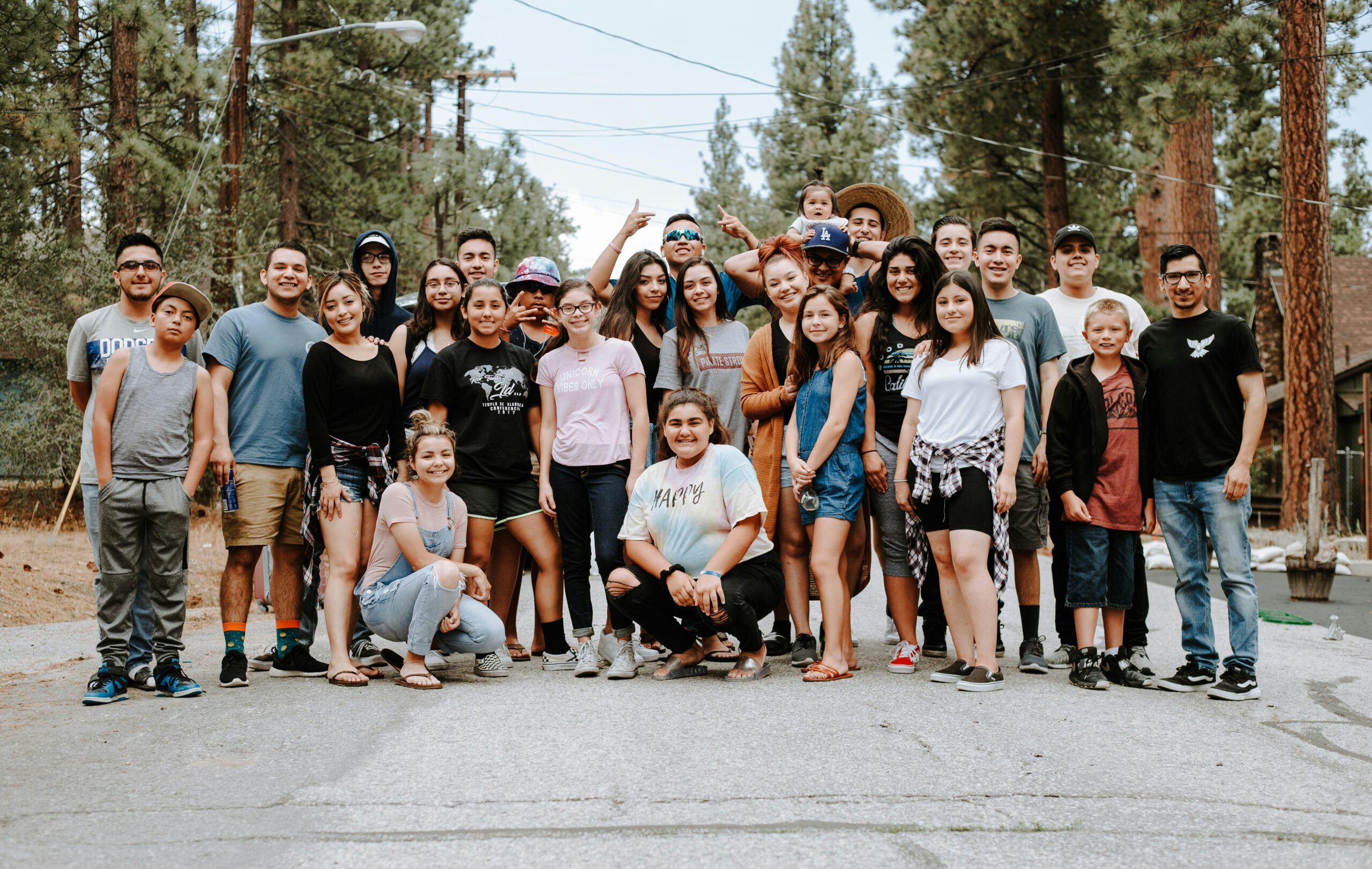Evangelism
4 Ways to Involve Your Small Groups in the Great Commission

If you want your church to balance God’s purposes and grow in a healthy way, your small groups must lead the way.
It goes like this: You’re only as healthy as the cells in your body. It’s a basic truth of human health. If your cells are sick, your body will be sick, too.
The same is true in churches. Your church will only be as healthy as the cells within it.
And your small groups are those cells. They help build God’s purposes into every heart, every group, and every ministry.
In Acts 2, we read about the first small groups in the early church. The Bible says:
-
- They grew spiritually (v. 42)
- They ministered to one another (v. 45)
- They fellowshipped (v. 46)
- They worshiped (v. 47)
- They evangelized the spiritually lost (v. 47)
Unfortunately, many small groups today just focus on one or two purposes. Often, it’s fellowship or discipleship (or both). Maybe they’ll add some worship songs at the beginning of the meeting time. They might even be involved in ministry as a group.
But evangelism and missions tend to get left behind. This means many small groups aren’t balanced, and that stunts their influence. Yet small groups—the “cells” of a congregation—have such great potential when it comes to helping your church fulfill the Great Commission.
In his book Planning Small Groups with Purpose, Steve Gladen, the pastor who’s overseen Saddleback’s small groups for many years, writes: “The world can be the mission field for your small group ministry—from your front door to the farthest reaches. You can help your church define its global, local, and personal opportunities to evangelize, and then equip your groups to meet those needs.”
It’s no coincidence that Jesus started his ministry by forming a small group. If anyone could have handled his mission by himself, it was Jesus. But instead, Jesus gathered a group of 12 to serve with him.
Here’s why it’s so important that we mobilize our small groups to fulfill the Great Commission.
- We’re a family. The Bible says in 1 Corinthians 3:9, “We work together as partners who belong to God” (NLT). God wants his family to work together in the mission he has given us. God wants our relationships to grow as we serve.
- We need each other. Nobody has all the gifts and talents we need to reach our communities and our world. God created us that way so we would need each other. The Bible says we’re a part of the body of Christ. We are a foot. Or we are a hand. Or we are a head. Or we are a mouth. We can’t fulfill our God-given mission on our own.
- We get more done. The Bible tells us, “Two people are better off than one, for they can help each other succeed” (Ecclesiastes 4:9 NLT). Teamwork multiples effectiveness. God wants to use the people in your church in ways they never dreamed possible. But they’re not enough on their own. No one is. God wants to use us as part of a team to fulfill the Great Commission.
Your small groups can do this. They can work together to share Christ with friends locally and around the world. Here are a few easy steps to get people started.
Ask small groups to enlist a missions champion.
You really can’t create balanced small groups without champions. You need one for each of the five purposes (worship, fellowship, discipleship, ministry, evangelism/missions). You need someone passionate about fulfilling the Great Commission in every group to “own” evangelism and missions. If promoting missions is everyone’s responsibility, it’s no one’s responsibility.
Your missions champions will keep your small groups alerted to new opportunities to serve. This person will coordinate the group’s missions opportunities and make sure it’s a good experience for all who participate. They may also remind the group to pray for mission needs around the world. These champions will ensure that missions remains a part of each group’s experience together.
Encourage groups to pray for people who don’t know Jesus.
People can reject your arguments. They may refuse to listen to your logic. But they are powerless against your prayers. It goes straight to their hearts. The people in your small groups know people who don’t have a relationship with Jesus. Make sure it’s a habit for them to lift these people to the Father.
But also, ask your small groups to pray Colossians 4:3: “That God will open doors for telling the mystery of Christ” (The Message). When they pray, opportunities will come. Prayer makes us aware. They’ll start seeing those opportunities everywhere.
Build relationships with non-Christians.
Steve Gladen notes in his book that most classes and sermons focus on “closing the deal” and the final commitment of people coming to faith in Christ. Steve writes, “So in spurring small groups toward outreach, we will focus predominately on how to mobilize groups to plant and water—to love non-believers through all the weeks and years it often takes to build trust and overcome their misconceptions about Christianity.”
It’s important for the people in your small group, as they look for ways to engage non-believing friends with the Gospel, to appeal to common interests. We encourage small groups at Saddleback to make a list of interests they share in common. Then they can invite their friends to participate in these activities with them. It could be watching football, going to movies, or gardening. Invite friends and relatives to participate in common recreational activities that the group enjoys doing together. These relationships will provide opportunities for the group to plant and water the Gospel into these relationships.
Serve together.
We also encourage our small groups regularly to participate in local mission projects together. Our church purposely provides mission opportunities that can be done as a group. But you don’t have to stop with local involvement. Every small group can plan a mission trip somewhere together. Just like every person should have a global mindset, so should every small group.
Your small groups present the best way for you to get your entire congregation involved in God’s mission around the world.
Your church’s worship services are the mouth of the church. It’s where you preach the Gospel. It’s where you worship together as a body of believers.
But the heartbeat of your church is found in your small groups. It’s in the cells of your church where you determine its health. If your small groups aren’t balancing all five purposes (including evangelism), your church won’t balance the purposes. Your church won’t be healthy.
On the other hand, healthy churches have small groups that engage non-believing friends and take the message of Jesus around the world.















